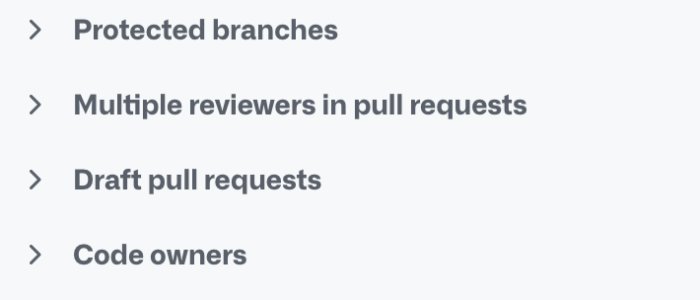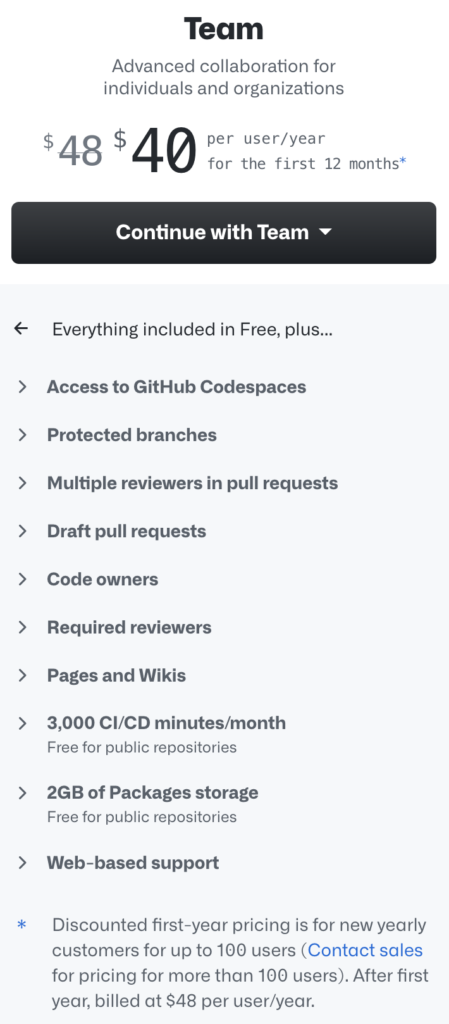
You may find that the free plan gives you all you need, but for four dollars a month, access to Codespaces, Pages, and Wikis are right in the sweet spot for technical writers using GitHub and docs-as-code techniques.

What has changed in GitHub pricing?
I previously wrote GitHub Pro Account Or GitHub Free Account For Technical Writing when the plans were $8 USD per month, and you needed to pay that level to have access to private repositories and to work with other collaborators privately. Now the paid “Team” plan gives you many more benefits than just access control and protection, it also gives you publishing and automation tools directly. And for the docs-as-code value proposition, those tools are a true time-saver.
Separating a personal GitHub account from work
The free plan is great for learning, though, and maybe enough capability for personal projects. If you have an employer paying for a user license already you may think you’re all set. But! I do want to encourage people to set up an account separate from their employer. Think about it this way: when you leave that company, you need to consider that the account and the account’s data likely should stay with the company. I am not a lawyer, so do not take this post as legal advice, but you likely want to maintain a separate personal GitHub account from a work GitHub account so that there is easy separation when you leave the company.
Benefits of Paying for a GitHub Plan
You probably know I’m a big fan of GitHub Pages for publishing Jekyll or Sphinx static site generator pages quickly, by merging a pull request to a GitHub repository. As a feature, GitHub Pages likely pays for itself in hosting per month, to be honest. Add on Codespaces and CICD and the pricing is a real bargain for the backend infrastructure for automated builds and for setting up a development environment.
In summary, I can’t find a reason not to find room in your personal budget for a GitHub or GitLab account. While this post talks about GitHub, the same logic goes for a GitLab account if that’s where you choose to work with others on your coding or documentation projects.
How about you? What are your deciding factors for choosing to put your own money into a collaborative coding user license?